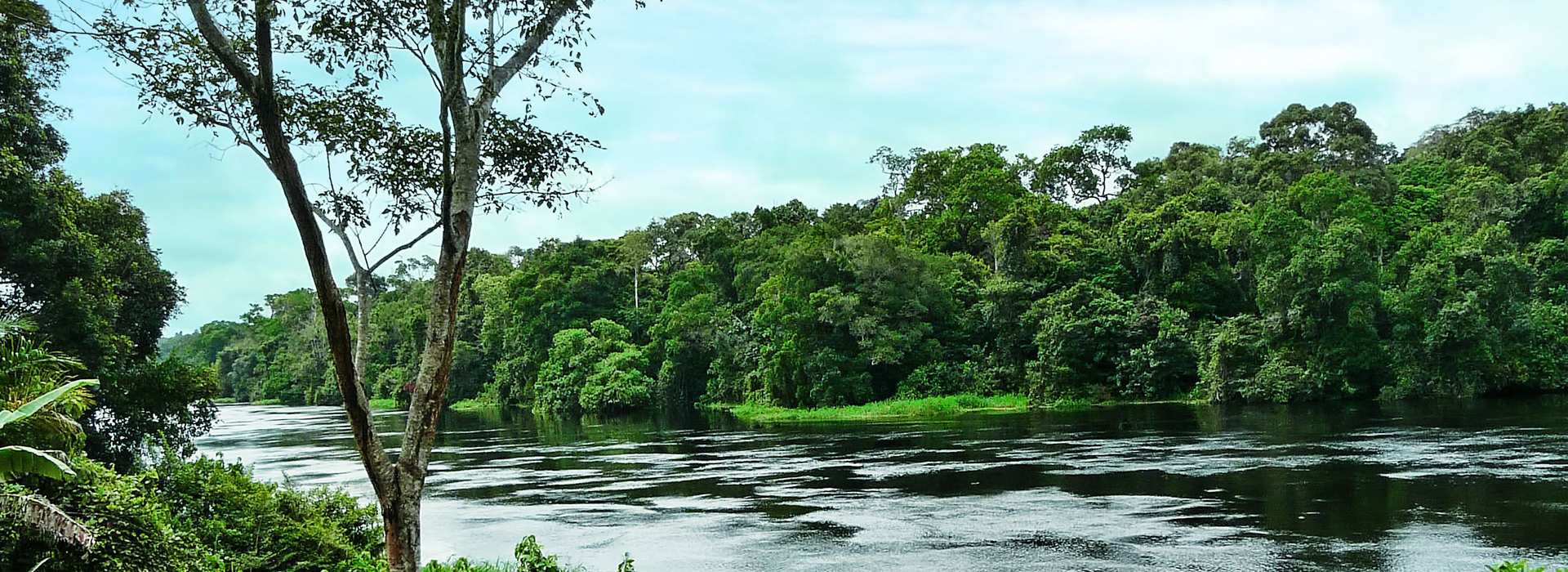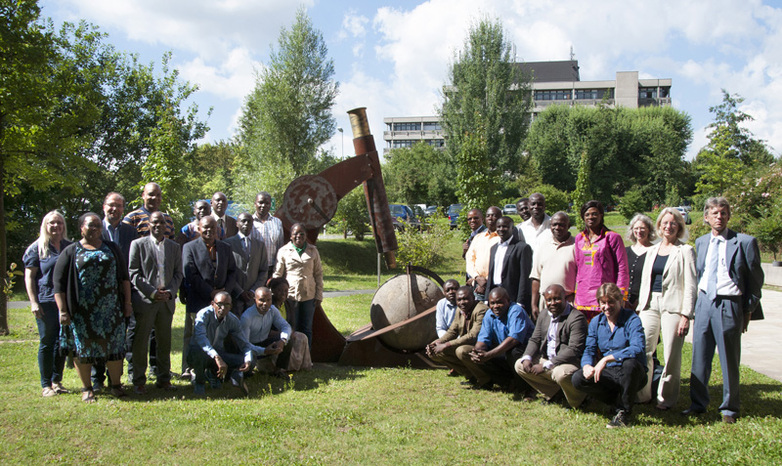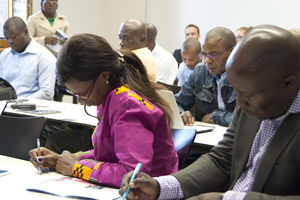 © GIZ
© GIZ
The Congo Basin in Central Africa is the world’s second-largest contiguous area of rainforest after the Amazon Basin. However, its forests are endangered. As a consequence ten Central African states decided to cooperate to protect this unique ecosystem. Since 2009 AIZ has been promoting initial and advanced training for urgently needed managers and experts in the field of forestry and the environment as part of the GIZ regional project Sustainable forest management in the Congo Basin, support to the Central African Forest Commission (SP-COMIFAC).

Background
With over 10,000 plant species and more than 1,000 bird species, the Congo Basin is a byword for biodiversity. In terms of global climate mitigation, it is also a vital sink for carbon dioxide. And yet its very existence is threatened by uncontrolled logging. To preserve the Congo Basin, the Central African Forest Commission is supporting a cross-border action programme which involves ten Central African states, including Cameroon, the Democratic Republic of the Congo, Rwanda and the Central African Republic. If this initiative is to be successful, additional specialist and management skills are required at training institutions, and new courses of study will need to be developed.
The role of AIZ
From a political perspective, on behalf of the Federal Ministry for Economic Cooperation and Development, AIZ worked with its local partner RIFFEAC, a network of 21 training institutions, to support the development of a regional guideline on basic and further training in the field of forestry and the environment. From the educational perspective, AIZ helped its local partner to improve the training system in order to ensure high-quality training for the current and future generations, and thus guarantee sustainability for climate change mitigation and forest conservation efforts in Central Africa. AIZ identified the needs for local skills development and advised RIFFEAC on implementing the pertinent activities. Finally, based on the needs analysis, it developed a range of measures, including summer schools, and supported the implementation of knowledge transfer projects. AIZ also set up numerous training courses involving experts and managers from training institutions committed to conserving the Congo Basin, to develop their leadership and management skills.

Results
New standards in forestry and environmental training have been drawn up in nine Central African countries. The successful outcome in numbers: since 2009, five new degree courses have been launched as part of the cooperation between AIZ and RIFFEAC. In addition, funding has been provided to develop 29 new further training courses at Central African universities and technical colleges. 1,325 experts and managers have received further training. 21 lecturers and 12 directors took part in a 2-month summer school in Germany in 2016.
Inspired and with newly acquired knowledge, Langsi Georges Ngwa, who lectures at the Ecole de Faune in Garoua, Cameroon, returned home after a year-long skills development programme in Germany. "During my study trip to Germany, I learned a lot about organisation, communication, conflict management and leadership. I’ve become more self-confident and focused as a person. Our institution benefits from my experience thanks to better marketing and more targeted efforts to tap into our own financial resources. That includes offering further training courses on wildlife monitoring and on the enforcement and application of animal protection laws.”